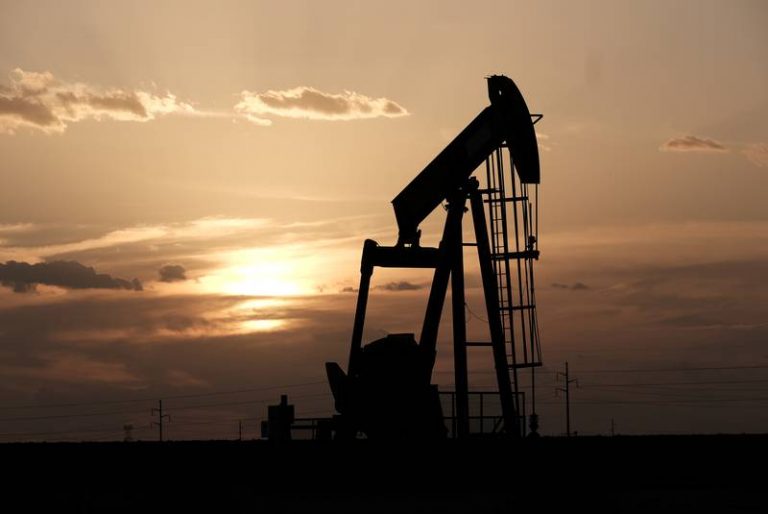Oil prices down 2% on US-China trade doubts, Opec+ talks

NEW YORK (Reuters) – Oil prices fell about 1% on Thursday after a media report cast doubt on the possibility of an interim U.S.-China trade deal and as a meeting of the OPEC+ alliance yielded no decision on deepening crude supply cuts.
Oil was pressured further after the European Central Bank cut its deposit rate to a record low -0.5% from -0.4% and said it will restart bond purchases of 20 billion euros a month from November to prop up euro zone growth.
Brent crude LCOc1 futures settled at $60.38 a barrel, shedding 43 cents, or 0.71%. WTI crude CLc1 futures settled at $55.09 a barrel, losing 66 cents, or 1.18%.
Oil futures extended losses after a senior White House official denied a Bloomberg News report that the United States was considering a temporary trade agreement with China, according to CNBC.
Earlier, prices had been supported on news that the world’s two largest economies made some concessions in their protracted trade war.
“We had a lot of moving parts. We came in with the ECB, then we saw the U.S was going to reach some kind of interim agreement with China, then they ended up saying they’re not,” said Phillip Streible, senior commodities strategist at RJO Futures in Chicago. “Now we’re just back-pedaling and cautiously waiting for the next development in the market, whether it be from economic data, more verbiage from OPEC, and we’re still going to monitor inventories as a whole.”
Oil prices also stumbled after comments from Saudi Arabia’s new energy minister, Prince Abdulaziz bin Salman, said deeper cuts would not be decided upon before a meeting of the Organization of the Petroleum Exporting Countries planned for December.
A Thursday meeting of the market-monitoring committee formed by the Organization of the Petroleum Exporting Countries and its allies, whose de facto leader is Saudi Arabia, yielded a promise to keep countries within the production quotas they committed to in a global supply deal.
A statement from OPEC and its allies, a grouping known as OPEC+, said oil stocks in industrial countries remained above the five-year average. Oman’s energy minister said “the outlook is not very good for 2020.”
Prince Abdulaziz said Saudi Arabia would keep cutting by more than it pledged in the pact, which has throttled supply from OPEC+ by 1.2 million barrels per day.
Also feeding the bearish sentiment, the International Energy Agency said surging U.S. output would make balancing the market “daunting” in 2020.
“Booming shale production has allowed the U.S. to close in on, and briefly overtake, Saudi Arabia as the world’s top oil exporter … in June, after crude exports surged above 3 million bpd,” the agency, which advises industrial economies on energy policy, said in its monthly report.
The Paris-based IEA kept its oil demand growth forecasts for this and next year at 1.1 million barrels per day and 1.3 million barrels per day, respectively.
Reporting by Laila Kearney in New York; Additional reporting by Shadia Nasralla in London and Aaron Sheldrick in Tokyo; Editing by Matthew Lewis and Leslie Adler